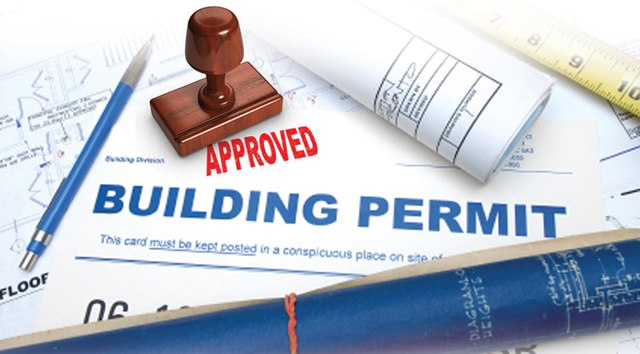 In today’s complicated world of residential real estate, it is important for homeowners to know when residential building permits are required. This is important for two reasons. First, if a homeowner makes a change in their home that required a permit and did not get one, it is much more expensive to get a permit after the fact. Second, when a homeowner is ready to sell their home, it is crucial to provide prospective buyers with permits for work done in the home that required a permit.
In today’s complicated world of residential real estate, it is important for homeowners to know when residential building permits are required. This is important for two reasons. First, if a homeowner makes a change in their home that required a permit and did not get one, it is much more expensive to get a permit after the fact. Second, when a homeowner is ready to sell their home, it is crucial to provide prospective buyers with permits for work done in the home that required a permit.
In the past, contractors almost never gave the homeowner a copy of the permit. DO NOT ACCEPT THIS! MAKE SURE THAT YOU HAVE A COPY OF A PERMIT FOR ANY WORK PERFORMED IN YOUR HOME AND KEEP THIS IN YOUR FILES FOR AS LONG AS YOU OWN THE PROPERTY.
Permit requirements are based on the State building code and are enforced by local officials. If you live in the city limits of a town, you must go to the town planning department. If you live in the county, (or in the case of Chapel Hill, you live in the buffer where you have lower taxes, but Chapel Hill Schools), you must go to the county planning department.
Cities and towns retain permits for 5 years, and counties retain permit records for 7 years. These record retention rules are based on NC State Law.
When you are ready to sell your home and you have done work that required a permit and you don’t have it or it is no longer available by your permitting authority, THIS CAN CREATE PROBLEMS FOR YOUR HOME SALE. Why?
- Buyer’s agents are going to ask you for any and all permits for work done on the house. If you should have them, i.e., the work was done within the previous 5-7 years depending on your permitting authority, and you did not have the space permitted, you will be asked to go back and have the space permitted. This can be very costly.
- Make sure that you give any and all permits to your listing agent before you put the house on the market. A good listing agent will be asking you questions about this and taking care of any possible issues before you put your home on the market.
- If you know the space was permitted but you don’t have the permit in your files and the work was done within the last 5-7 years, you should be able to get a copy from your local building authority. This is the very best situation.
- If, however, you know the space was permitted but you don’t have the permit in your files and the city, town or county no longer has the records, you must beware.
- The reasonable agent will know the rules and be aware that all you can do is have the property inspected by a licensed home inspector and/or a structural engineer and proceed with the transaction.
- An unreasonable agent – and there are plenty out there – will try and insist that you have the space permitted even if it was to begin with. This is not how the process should work, but in the complicated world of real estate, in some instances, it is still like the Wild, Wild West.
THE MORAL OF THE STORY: DO THE RESEARCH ON BUILDING PERMITS AND GET EVERY PERMIT REQUIRED. DO NOT CUT CORNERS. I PROMISE, IT IS NOT WORTH IT. WHEN IN DOUBT, CALL THE PLANNING DEPARTMENT AND PLEASE, DO NOT TAKE YOUR CONTRACTOR’S WORD FOR IT. THEY CAN BE WRONG. GET THE ANSWER FROM “THE HORSE’S MOUTH,” AND MAKE SURE YOU ASK ENOUGH QUESTIONS, BECAUSE SOMETIMES PERMIT OFFICIALS WILL ANSWER YOUR QUESTION BUT YOU DID NOT ASK THE RIGHT QUESTION. GO TEN LEVELS DEEP TO MAKE SURE YOU GET THE RIGHT ANSWER!
Provided below are a few examples of work that requires a permit. For a complete list, go to realestateexperts.net/permit-requirements.
- If the project is more than $30,000, the contractor must be a licensed general contractor.
- If the project is less than $30,000, the contractor does not have to be a licensed general contractor, BUT if any electrical work or plumbing work is done that requires a permit, you must obtain those required permits.
- Any work exceeding $15,000 requires a building permit.
- Building permits are required for things like:
- Detached garages, gazebos, pergolas, sheds larger than 12’
- Additions
- Any structural work
- Decks and porches
- Foundation work
Electrical and plumbing permits are referred to as “sub permits.” Sub permits are required for things like:
- Installation, extension, or general repair of any plumbing system
- Installation, extension, alteration, or general repair of any heating or cooling system
- Installation, extension, alteration, or general repair of any electrical wiring devices, appliances, or equipment
- Sewer connections to an existing dwelling
We at Real Estate Experts hope this information helps you understand why this is such an important issue. For a complete list of things requiring a permit and for specific examples, see realestateexperts.net/permit-requirements.
If you have any questions, do not hesitate to email us at [email protected] or call us at 919-551-3077. Ask for Jodi. She is the resident expert on these questions.
By the way, watch for a related post on this topic for buyers.

